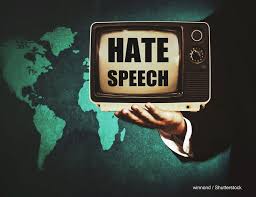Hate speech is the use of threatening, abusive or insulting words or behavior, or display of any written or published material which intends to stir up hatred against a group of persons by reference to color, race, nationality or ethnic background as provided for in the constitution.
Further it has been stated that “hate speech is one form of hate crime, but the term comprises a range of other types of incidents such as physical harassment and violence.
Kenya comprises of people from different ethnic groups with different cultural traditions that they affiliate themselves to. These social groups have common culture and dialect and they are linked by economic, religious or family ties.
Politics in Kenya is to a great extent based on tribe which has caused division and animosity among Kenyans due to its ethnically motivated competitive nature. Extensiveness of tribal politics was largely experienced in 2007 elections where over 1,100 people lost their lives and over 600,000 people were forced from their homes. According to political analysis “the dilemma arises when politicians use ethnicity for their personal gain and create a divide which breeds tribalism. The violence in 2007-2008 brought about the realization of the impact of hate speech to the nation and due to this, measure were put in place to curb the hate speech vice.
The effort to stop hate speech is mainly focused on mainstream media hence the formation of National Cohesion and Integration Commission (NCIC).
The hate speech offence is punishable by three year in prison or a fine of up to one million Kenyan shillings, or both.
The NCIC was formed to tame hate speech and promote national cohesion and integration. According to NCIC, it has discharged its mandate to fight hate speech with no favor to any political affiliation. In 2011-2016, NCIC stated to have recorded several court cases that proved impartiality.
The Commission has been frustrated by politicians who have learnt about incitement to violence by use of foul language constituting to insults not covered in any penal statute. Due to such challenges, the NCIC proposed amendments to the Act to help seal the existing loopholes. Mainstream media has become more careful on content they disseminate to avoid finding themselves on the wrong. However, hate speech on social media has been on the rise thus the biggest challenge to the Commission.
Tribal divide in the country has been expressed through social media. Supporters affiliated to different parties have attacked one another by creating suspicion through inflammatory statement posted on social media. The offensive information incites hatred, creating tension in the country. Although there is institution to tame hate speech, people still receive messages containing hate speech through peer-to-peer SMS and on social media.
In Kenya, it is a challenge to fight hate speech due to tribal connections. Perpetrators of hate speech especially politicians get support from the community they come from without looking at the impact of the words used. There is need for the community members to recognize the damages inflammatory speech made.
There is need to educate the society about the dangers of hate speech. Most of the time, leaders accused of hate speech manipulate community elders who in turn come out to defend their own without thinking of the damage caused to the victims.


